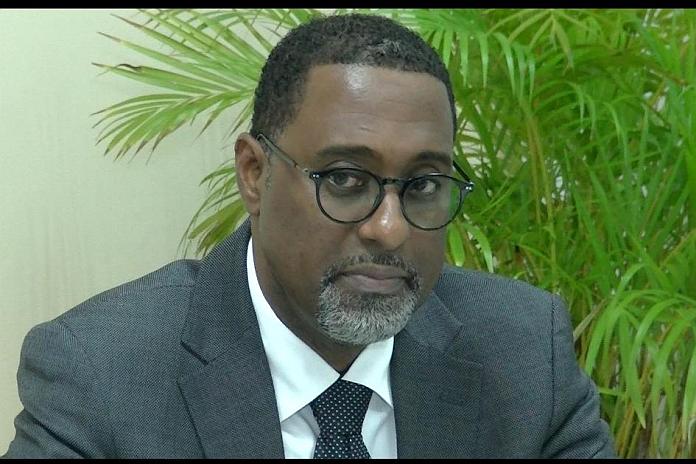By Dr Alphonsus St Rose, Independent Candidate for Choiseul/Saltibus
In the context of a Covid-19 pandemic, what doesn’t get tested never gets managed.
Economic security can only be guaranteed in a sustainable manner if the Covid-19 pandemic is contained. Failure to do so will adversely impact every strata of society, but disproportionately more the lower socioeconomic strata, where poverty, inequality and inequities abound. Small businesses too, which are a major stabilizing force in our small and vulnerable economies, will be affected by lay-offs, fragile cash flow reserves and increased financial risk exposure.
The middle class is an important economic pillar of growth, development and human capital. Although its educational and skilled background makes it a vital source in demand of goods and services, many live pay-cheque to pay-cheque, or are a pay-cheque away from poverty. Stagnant wages, inflation, high taxation and high-interest rates in concert with Covid-19’s impact will shrink and trend the middle class towards poverty. That is a bad forecast.
All our major tourism source markets carry a high-risk Covid-19 disease burden and prevalence. Yet the government’s insistence on facilitating non-essential travel, especially from these hotspot areas to our shores, is really beyond logical comprehension. Oh, it’s the mighty economy!
The Centers for Disease Control and Prevention (CDC) is warning US citizens not to engage in domestic travel for the upcoming holidays in order to assist with containing its Covid-19 exponential growth, and is being ignored. Advisories against non-essential travel to Saint Lucia have also been put out by the CDC, while our government seems grateful for continued international travel from hotspot areas with open borders.
Because of the associated morbimortality, any Covid-19 pandemic resurgence could demand renewed social distancing, working from home, staying home, curfews, to shutting down of borders. Border control as a preventive/containment strategy that hopefully should be as least disruptive to travel and commerce where possible, so as not to impact lives and the economy adversely.
This is the Covid-19 paradox, as this is not always possible, especially in small vulnerable economies like ours where cargo, cruises, flights and passengers remain a big risk. At what point do economic pressures force a reopening of the borders remains a vexing and unresolved issue.
A crumbling healthcare system and a battered and downward spiralling economy with no resilience capacity to withstand any more stressors is our uncomfortable reality. Ironically, many of these high-density Covid-19 zones (with more robust healthcare systems and economies) are closing their borders (UK, Canada), ostensibly to manage their second wave resurgence, by limiting the inflow from outside of potential (asymptomatic) and active virus spreaders. This is a basic Pandemic Containment 101 principle.
How does Saint Lucia get out of this quagmire, in part brought upon us by bad decisions and poor judgement exercised by some of our leaders, Covid-19 being our black swan event? We need an urgent National Public Health (Covid-19) Strategic Policy and a National Economic Recovery Policy with public non-partisan buy-in.
They both must be well funded with clear objectives, legislative authority, and parliamentary and public oversight. This is the only way we can hold our leaders accountable for honest and transparent governance in our collective best interest given what the public already knows.
Will the Chief Medical Officer (CMO) walk back her unfortunate public pronouncement of no second Covid-19 testing for visitors coming to our shores (front door) from the known hotspot areas? One can be tested negative today and can be positive tomorrow and so why wouldn’t that be of vital interest to us? The CMO manages surveillance and advice to the government on appropriate public health policy direction to protect the homeland and its citizens. That calls for honest and transparent disclosure to the public as well.
It is critically important to surveil negative cases coming in from high-risk areas through robust internal control systems of testing and contact tracing, as they do present an ongoing existential threat to our homeland. Second testing in the context of this pandemic is a process of verification and validation of the first test which is vital to detect any false negatives, late seroconverters as well as anyone who may have become infected post-first-testing.
Any intention to re-test visitors or returning nationals would mean that they should remain in quarantine until second tested and the results made available. Why would any visitor want to be subjected to that, bear the cost of a second test and especially when our tourism product and offerings, respectfully, are little different from other competitive destinations? The practicality of when do we second-test remains a vexing issue?
This is the conundrum this overly exuberant government has created for itself and the citizenry by wanting to facilitate a reopening of the economy and tourism industry specifically with inflow from high-risk source markets without a thoughtful and thorough containment/mitigation plan.
Remember we are “broke” and do not possess “monetary sovereignty” for leveraging. Austerity, structural readjustment and prudent fiscal management of monies borrowed in the public interest demands that the political directorate makes the case for honest disclosure and public buy-in. ![]()





